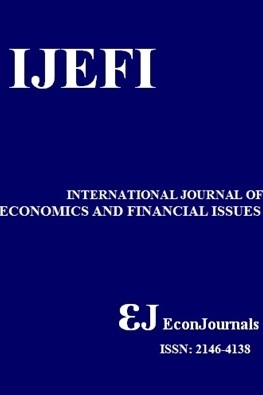The Moderating Role of Loan Monitoring on the Relationship between Macroeconomic Variables and Non-performing Loans in Association of Southeast Asian Nations Countries
The Moderating Role of Loan Monitoring on the Relationship between Macroeconomic Variables and Non-performing Loans in Association of Southeast Asian Nations Countries
- Başlangıç: 2011
- Yayıncı: İlhan ÖZTÜRK
Chee Yin Yip, Hock Eam Lim, Hooi Hooi Lean
An Empirical Research on Fragile Eight Countries
Mustafa Mete, Mehmet Akif Destek
Resource Saving Innovative Forms of the Industrial Enterprises
Alsu A. Lubnina, Marina V. Shinkevich, Svetlana I. Ashmarina, Natalia A. Zaitseva, Guzel B. Sayfutdinova, Izida I. Ishmuradova
Natalia Victorovna Kuznetsova, Ekaterina Victorovna Kocheva, Nikolay Anatolievich Matev
Omar Durrah, Abdul Aziz Abdul Rahman, Syed Ahsan Jamil, Nour Aldeen Ghafeer
The Political Economy of Financial Regulation Policies Following the Global Crisis
Serpil Kılıç DEPREN, Özer DEPREN
Vladislav Spitsin, Aleksandr Mikhalchuk, Vladimir Zalmezh, Irina Antonova, Igor Tsekhanovsky, Valeriy Zadorozhnyi, Nataliya Shabaldina, Larisa Dorzheeva
Board Characteristics and Managerial Overconfidence in an Emerging Market
